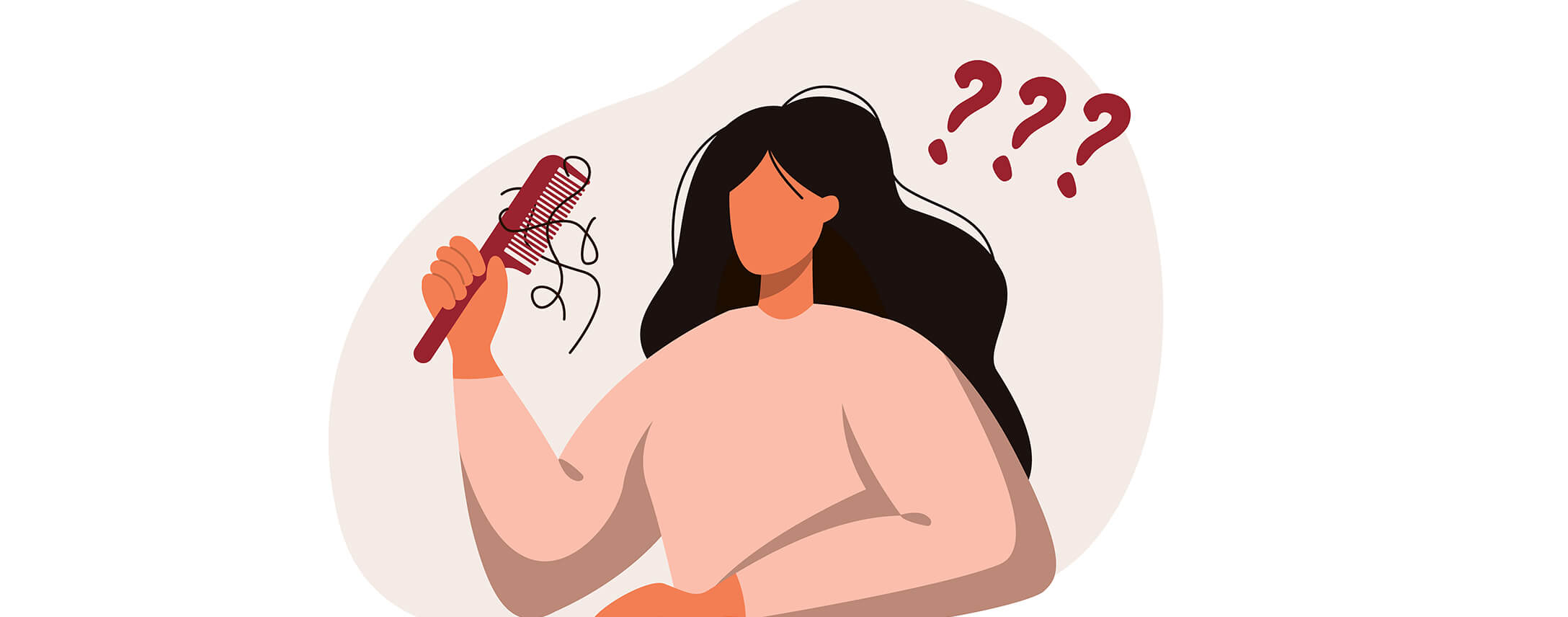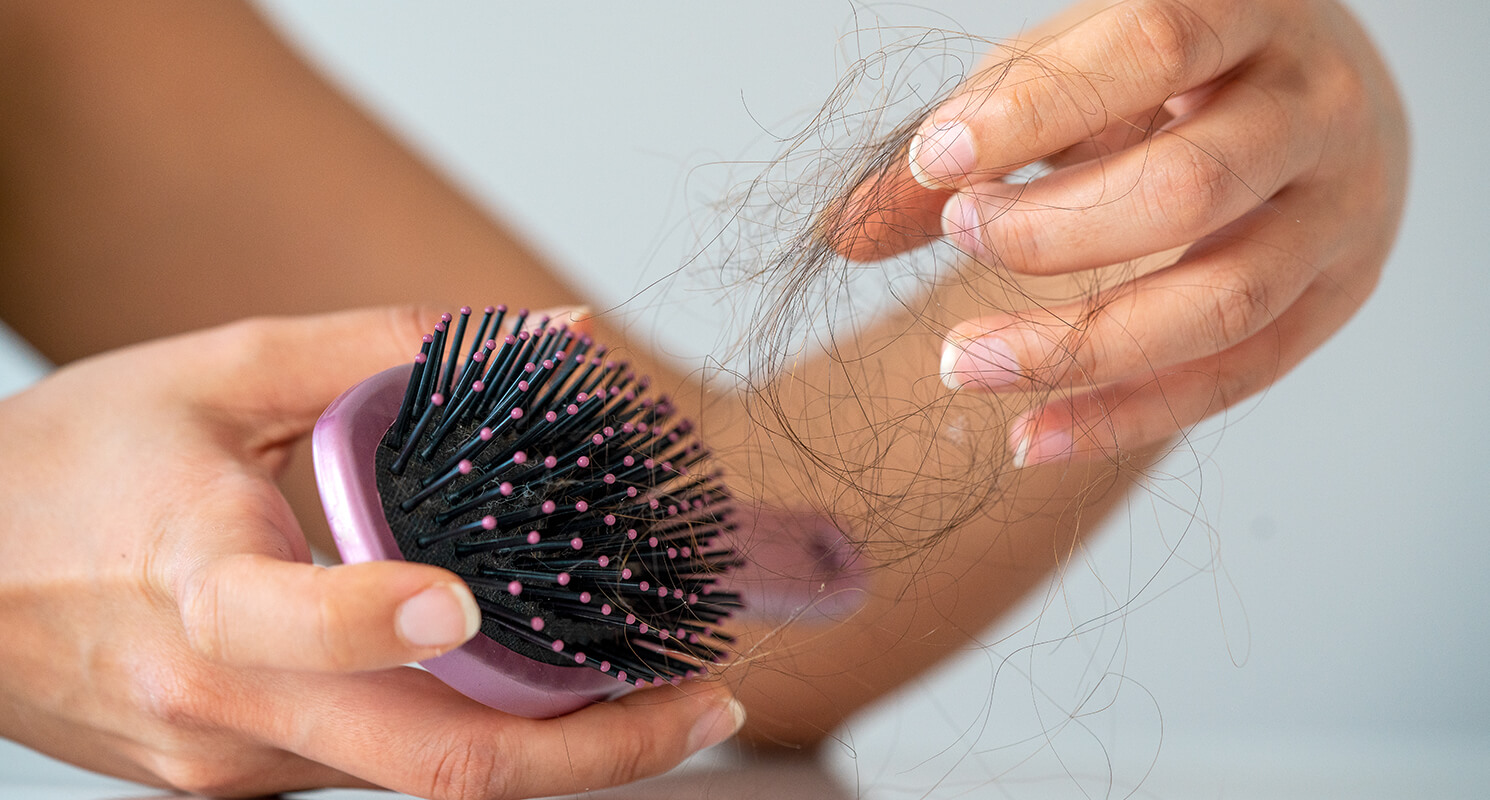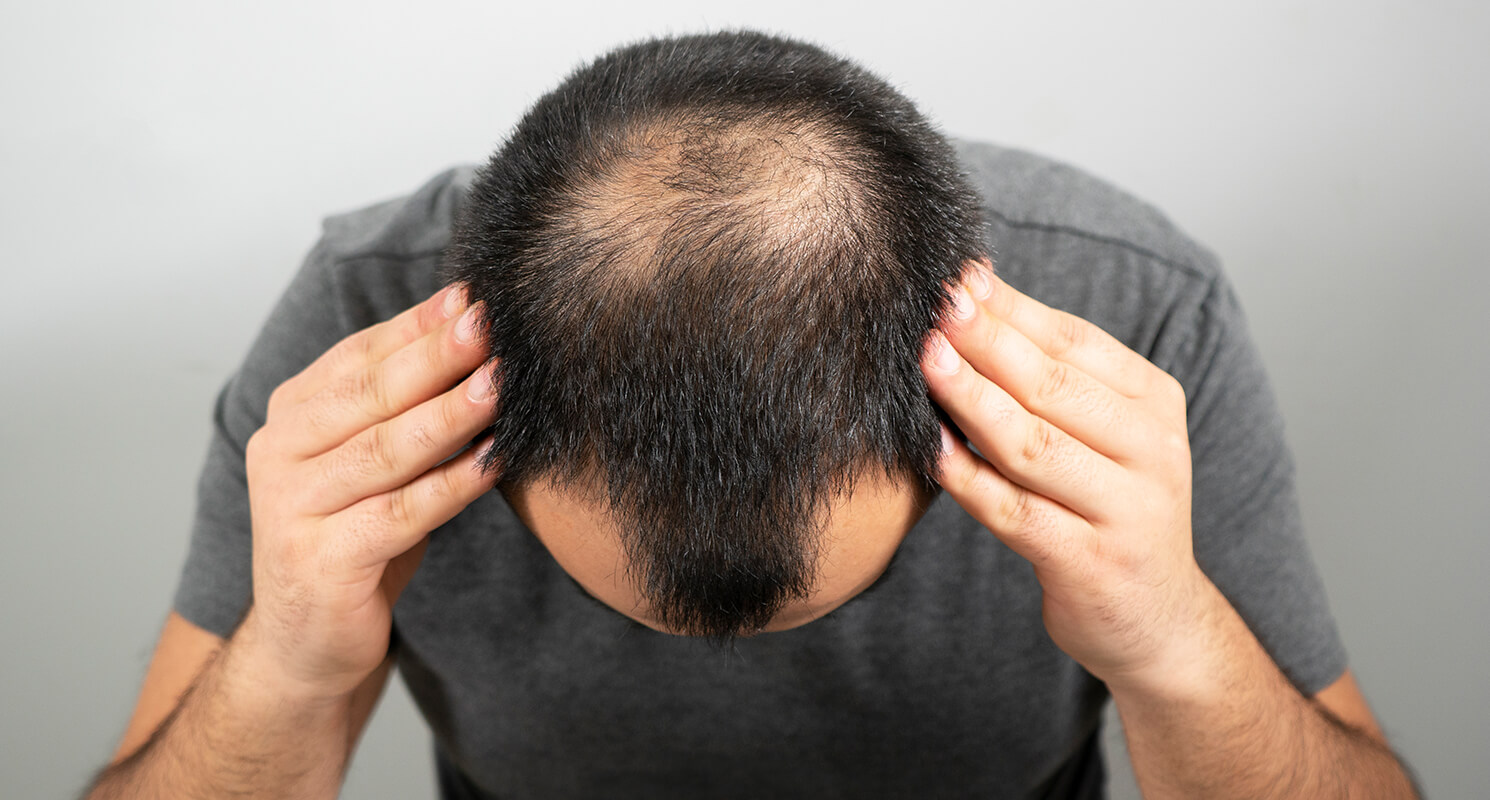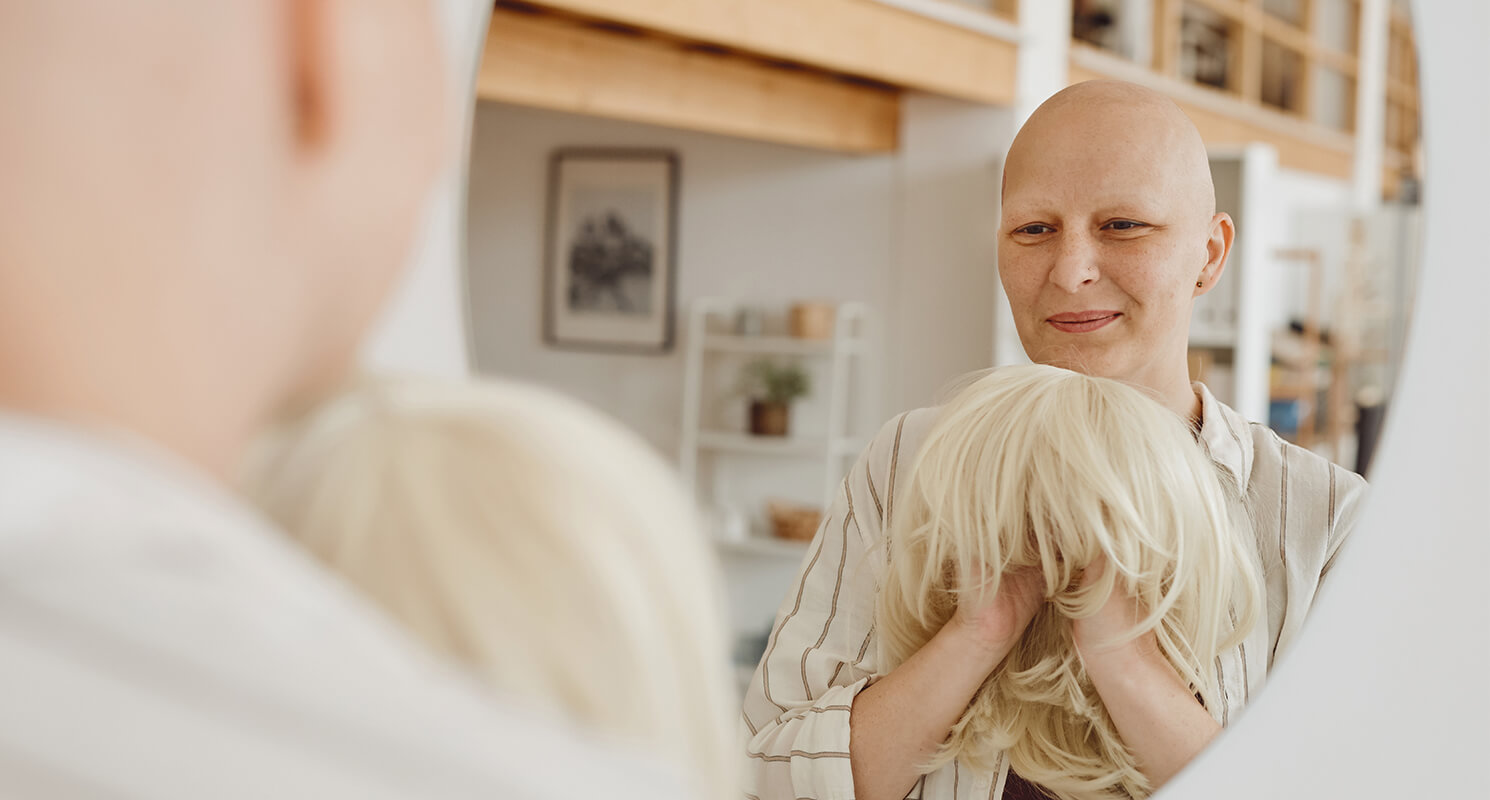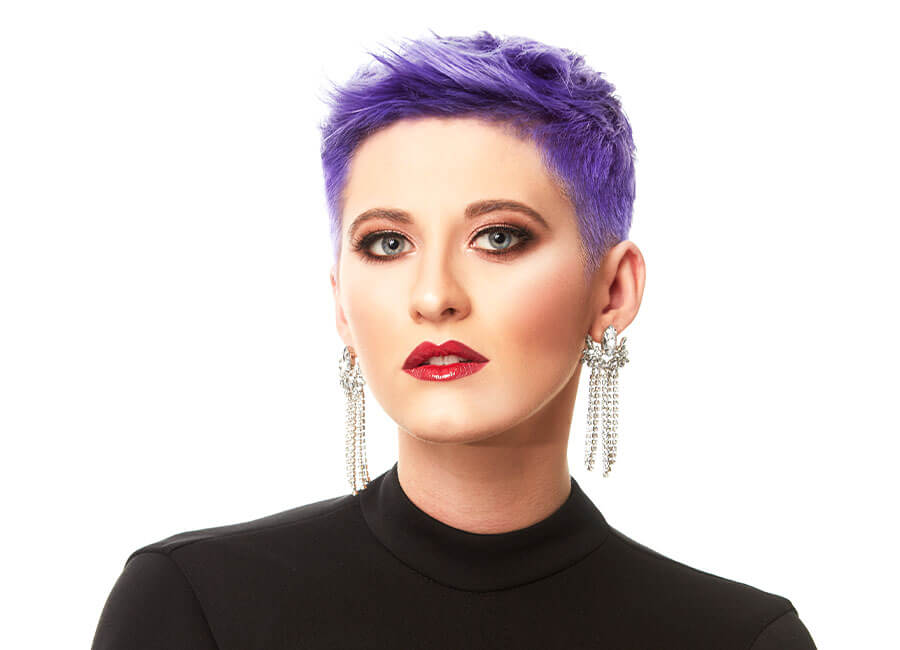What’s the cause?
There are several reasons why people experience hair thinning and loss. That’s why, as a hairdresser, it’s important to ask your clients about the different elements of their lifestyle. Some of these may be diet, exercise or medical conditions. This will help to get to the root cause and steer them towards the right solution for their hair care routine following their treatment. Here are some of the causes to consider when you speak with your clients.
Hormonal imbalance
Fluctuating hormones and imbalances can come from a variety of medical issues, for example pregnancy and menopause. This is normally temporary, but it can be difficult to predict when hair starts growing back.
COVID-19
As mentioned at the beginning, around 1 in 5 people who’ve contracted COVID have reported hair loss as a long-term symptom. While no evidence suggests COVID-19 directly causes hair loss, doctors have indicated it comes from the physical and emotional stress of having the disease.
Stress
Have you heard someone say they were so stressed over a situation that their hair started falling out? You may be surprised to hear that this common saying actually has an element of fact. Some clients who’ve experienced psychological trauma will experience hair loss. This can be gradually or through a condition called alopecia areata, which takes the form of patches around the scalp or even the entire body in severe cases.
Nutritional deficiencies
Your client’s growth cycle is sensitive to changes in the body. This means any medical issues such as iron deficiency, anaemia and lack of vitamin C can result in hair thinning and loss. While your client’s hair should grow back once their deficiency is rectified, for example a change in diet, it’s still important to treat their hair to avoid further thinning or loss.
Underlying medical issues
Hair loss can be an indicator of side effects caused by different types of medication. Some of those to keep in mind when speaking with your clients include immunosuppressants, Vitamin A and prescription antibiotics. In most cases, hair will grow back once your clients have stopped taking these medicines, but you should be prepared for possible long-term effects.
Chemotherapy
One common cause of hair loss found in both men and women is chemotherapy. This normally happens within a few weeks of starting a treatment and can affect either all or most of the hair around the scalp and neck. Happily, it will normally regrow within a few months following their treatment.
Need to know more? Visit our Hair Loss and Thinning page.
